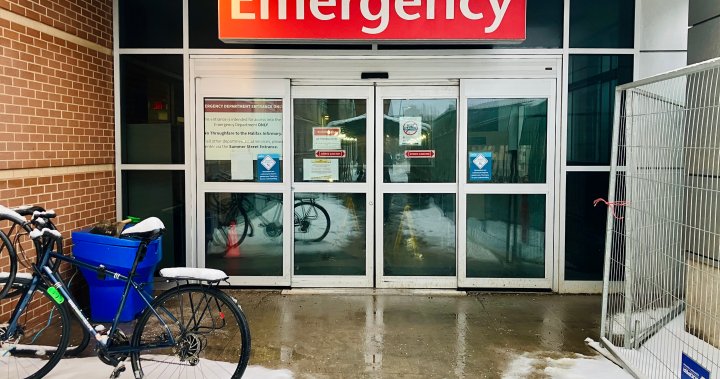The recent court appearance of Nicholas Robert Coulombe, a 32-year-old man charged with attempted murder and aggravated assault against three Halifax Infirmary staff members, has sparked a crucial conversation about homelessness, mental health, and the adequacy of support systems for vulnerable populations. Coulombe’s alleged attack, involving a knife according to court documents, occurred within the emergency room of the QEII Health Sciences Centre, a facility increasingly utilized by individuals seeking refuge from the harsh realities of living without stable housing. Coulombe’s history, which reportedly includes a period of residing at the Grand Parade tent encampment and more recently at a shelter in the Halifax Forum, underscores the precarious circumstances faced by many experiencing homelessness in the city.
The incident has brought into sharp focus the intersection of homelessness, mental health challenges, and the strain on public resources, particularly healthcare facilities. Andrew Goodsell, a member of the unhoused community residing at the Flynn Park encampment, expressed his concern, emphasizing the significant impact of street living on mental well-being. Goodsell highlighted the inherent stressors of homelessness, stating that the constant struggle for basic needs like shelter and safety can exacerbate pre-existing mental health vulnerabilities, potentially contributing to heightened states of emotional distress and impulsive actions. The incident serves as a stark reminder of the need for accessible and comprehensive mental health services tailored to the specific needs of individuals experiencing homelessness.
The increasing use of emergency rooms as temporary shelters by individuals lacking housing options further complicates the situation. While Nova Scotia Health acknowledges this trend, noting instances where staff have developed familiarity with individuals seeking respite in the ER, this practice places an added burden on healthcare facilities already grappling with resource constraints and staffing shortages. It also diverts resources from their primary function of providing emergency medical care, potentially impacting the quality and timeliness of services for other patients. Goodsell’s observation that limited shelter options on the peninsula contribute to this phenomenon underlines the urgent need for expanded and readily available housing solutions.
The response to this incident calls for a multi-pronged approach, encompassing both immediate security measures and long-term preventative strategies. Goodsell advocates for increased security measures within healthcare facilities to protect staff from potential harm. However, he emphasizes the equal importance of addressing the root causes of such incidents by prioritizing the creation of dignified and accessible housing options. This sentiment aligns with the views of housing advocates, who argue that sustainable housing solutions are crucial for ensuring the safety and well-being of both individuals experiencing homelessness and the community at large.
The Halifax Regional Municipality’s outreach efforts, which connect individuals experiencing homelessness with resources such as food, clothing, and access to provincial shelters, represent a valuable step towards mitigating the challenges faced by this vulnerable population. However, the ongoing occurrence of incidents like the alleged attack underscores the need for a more robust and comprehensive system of support. This includes expanding the availability of emergency shelter beds, transitional housing programs, and permanent supportive housing options that incorporate wraparound services like mental health care, addiction treatment, and employment assistance.
The broader societal implications of this incident necessitate a critical examination of current policies and practices related to homelessness and mental health. A comprehensive strategy must involve collaborative efforts among various stakeholders, including government agencies, healthcare providers, social service organizations, and community groups. This collaborative approach should focus on enhancing preventative measures, ensuring timely access to mental health and addiction services, and investing in permanent housing solutions that prioritize the dignity and well-being of individuals experiencing homelessness. Ultimately, creating a more compassionate and supportive environment is essential for fostering community safety and reducing the likelihood of similar incidents occurring in the future. The incident at the Halifax Infirmary serves as a stark reminder of the interconnectedness of homelessness, mental health, and societal well-being, prompting a call for meaningful and lasting change.










